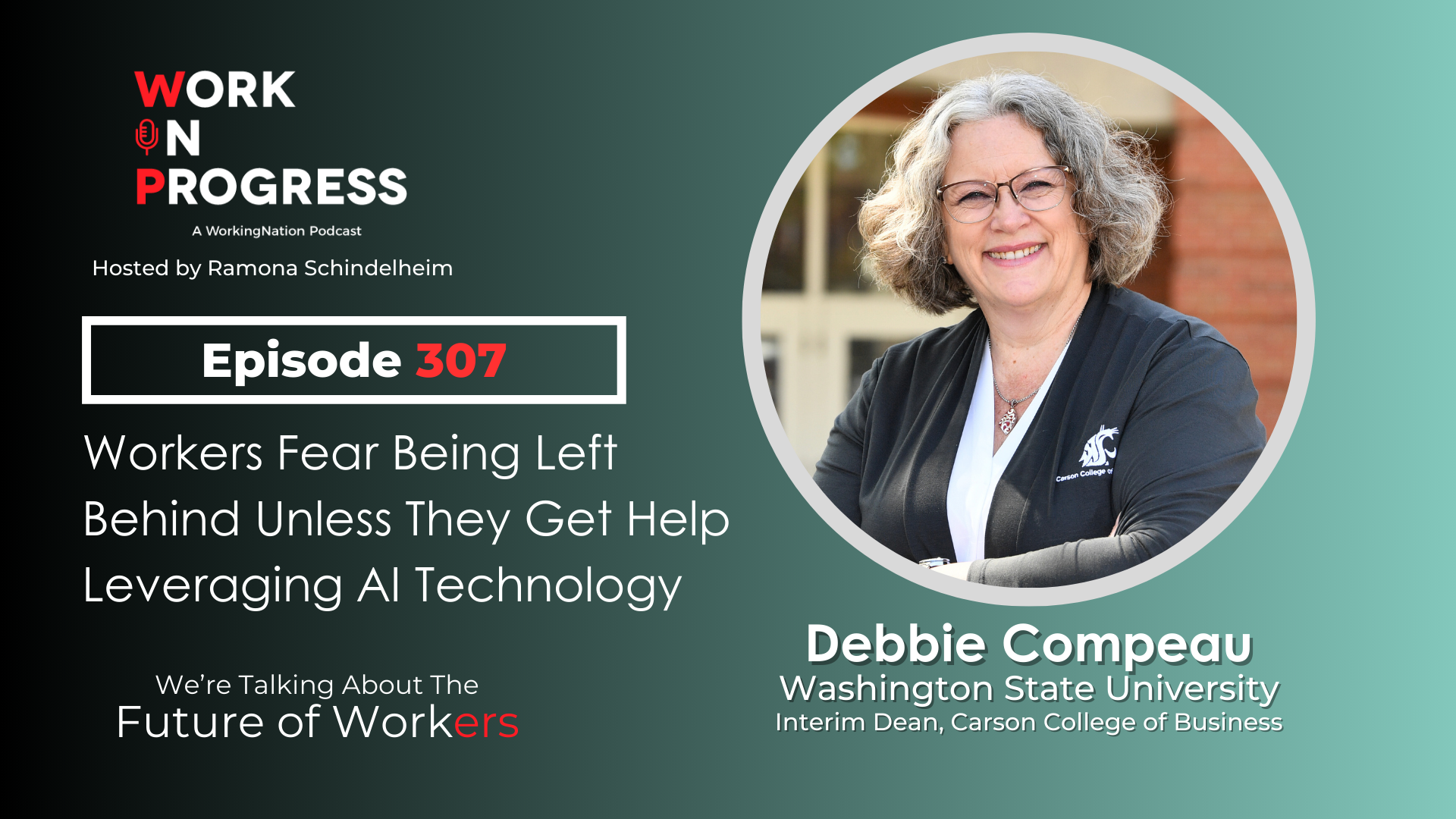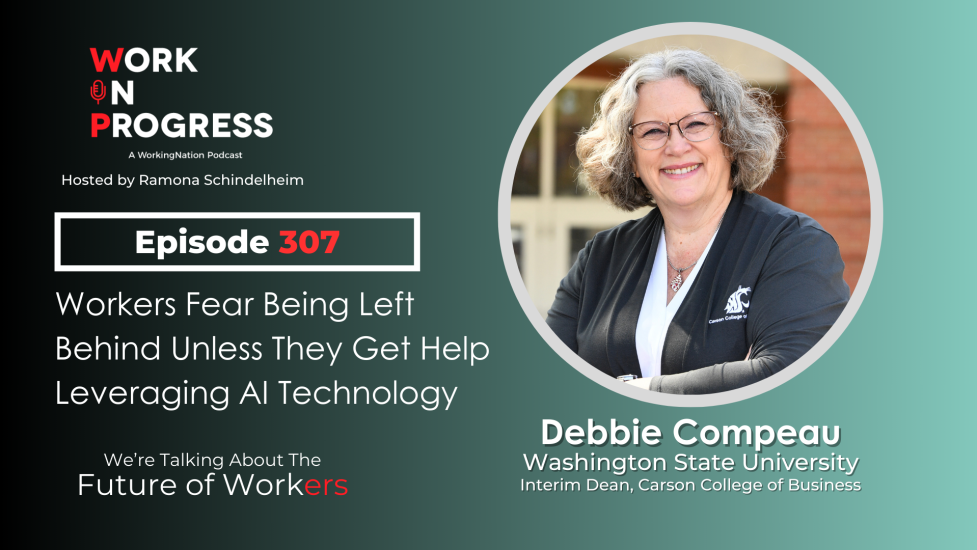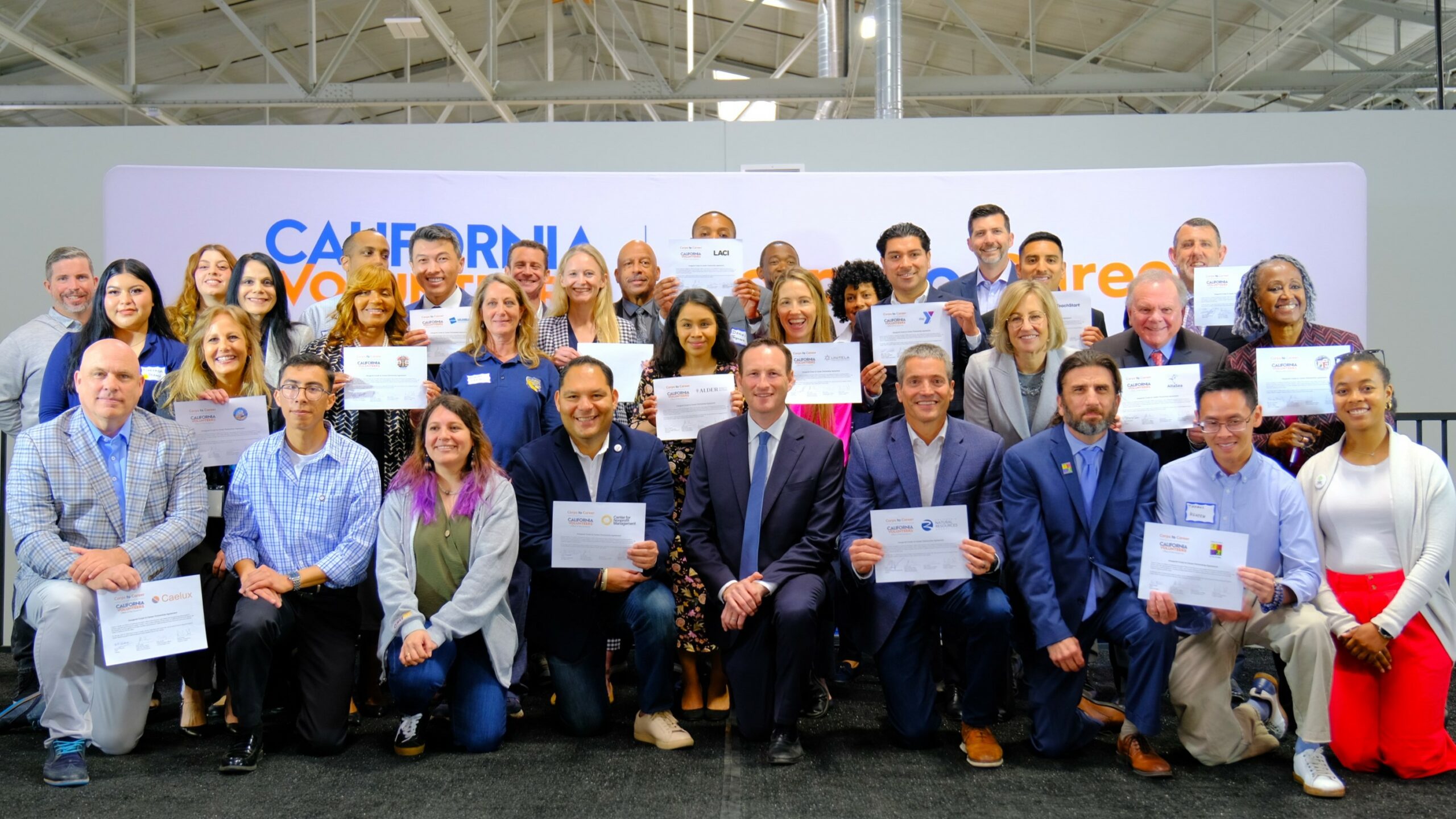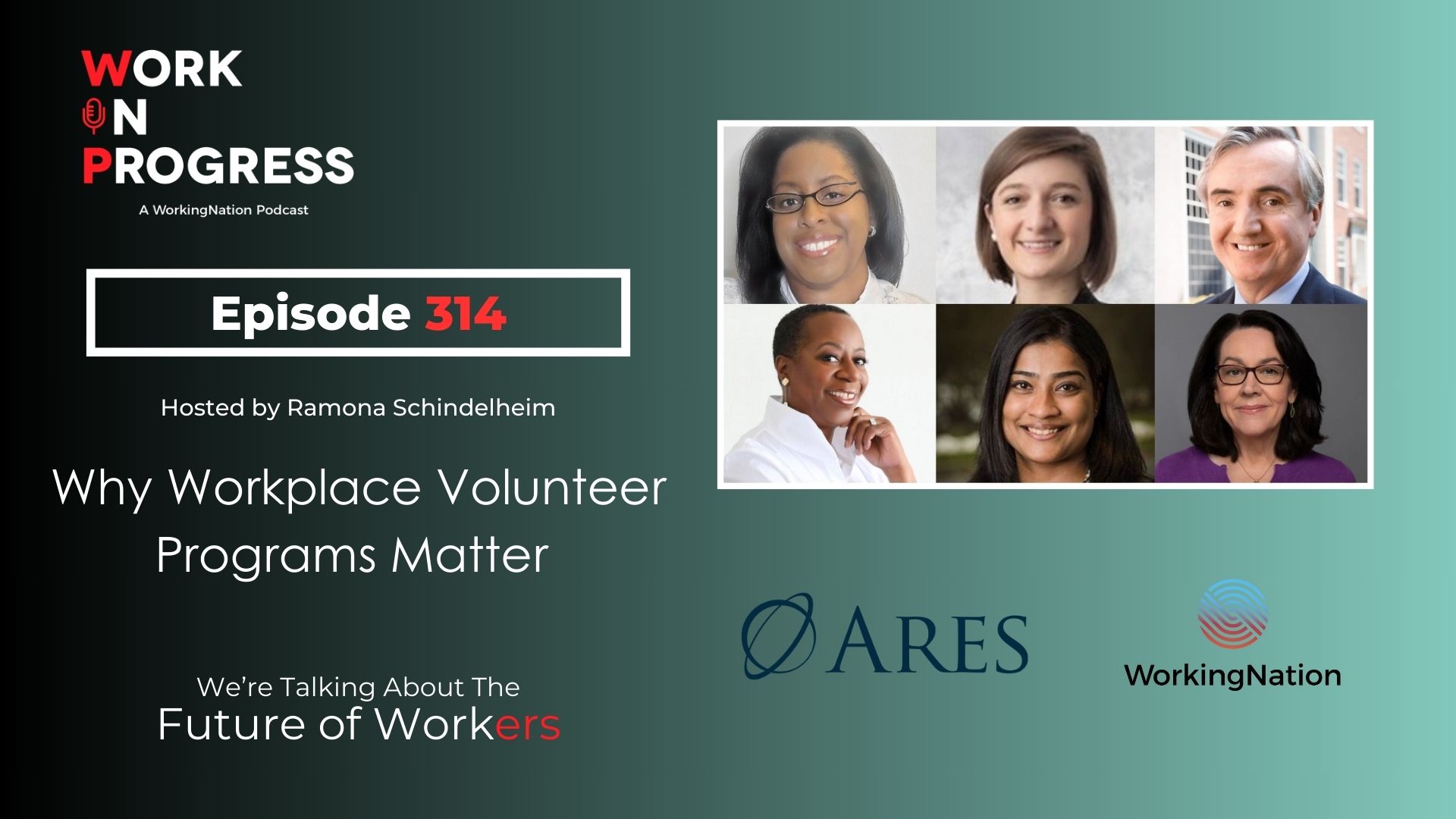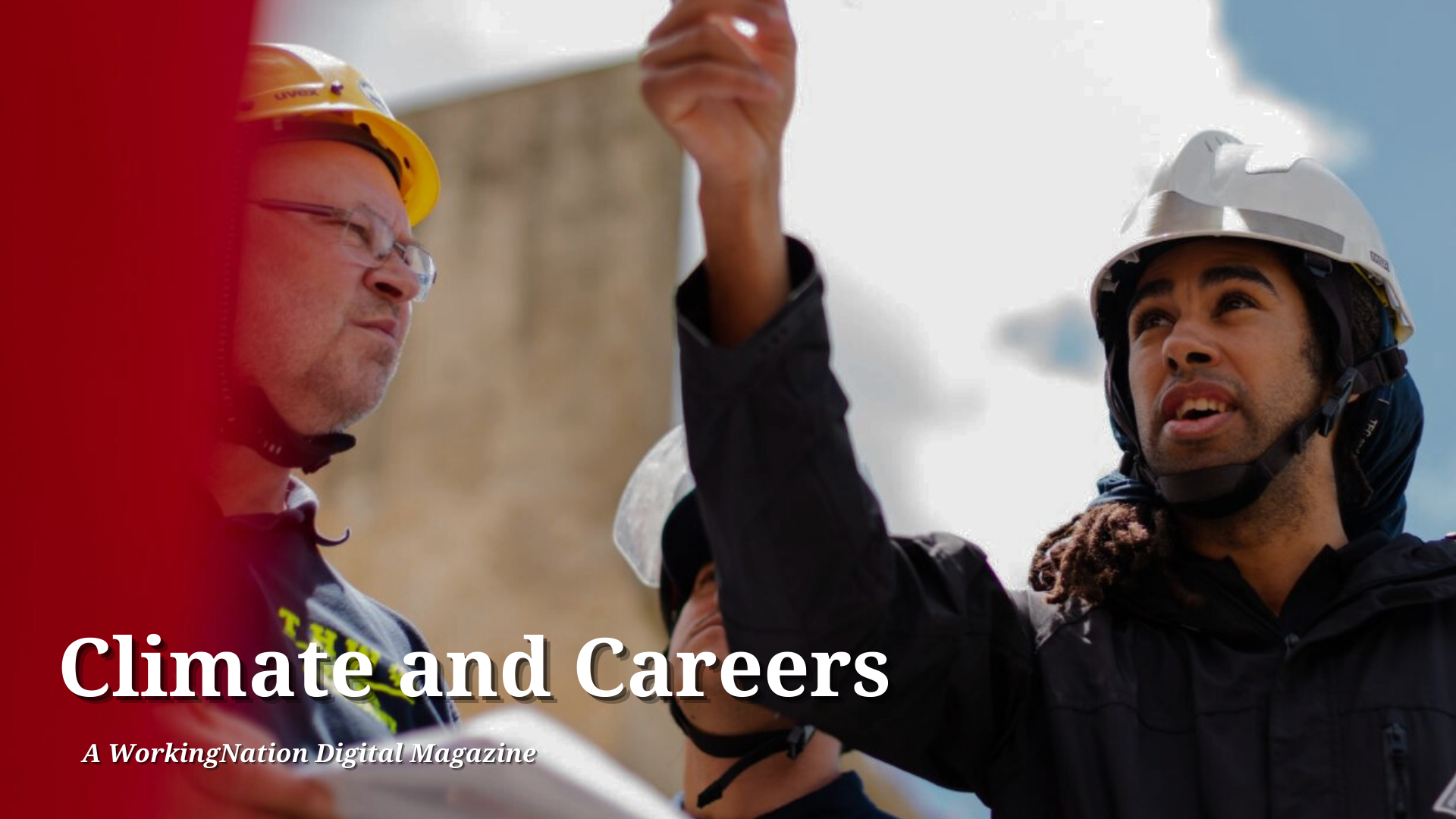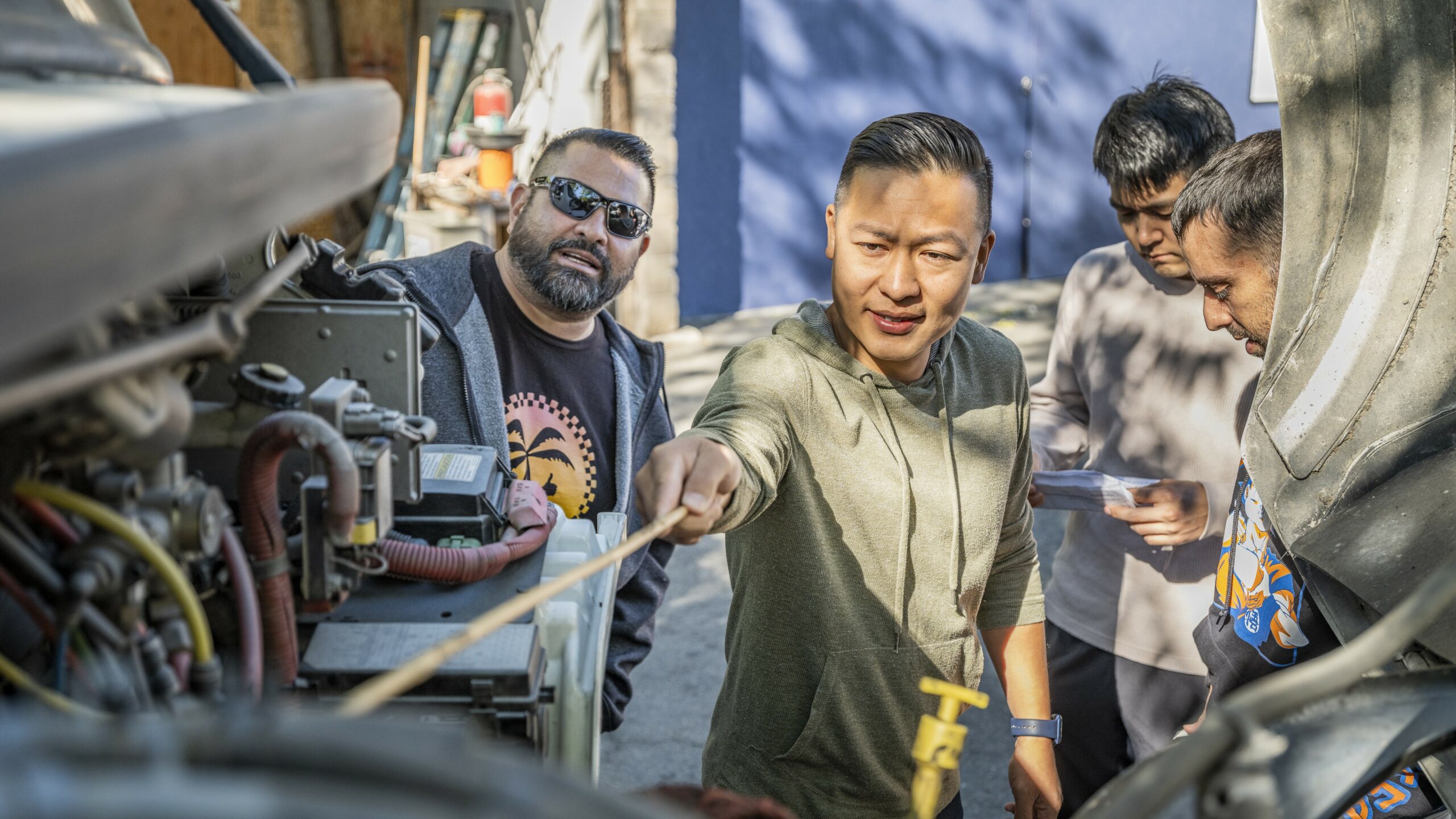Podcast: Play in new window | Download | Embed
Subscribe: Apple Podcasts | Google Podcasts | Spotify | Pandora | Youtube Music | RSS
In this episode of Work in Progress, I’m joined by Debbie Compeau, Washington State University’s Carson College of Business interim dean. A.I. I’m not sure if there are any other two letters in the English language right now that have evoked such anticipation, discussion, debate, or concern.
A new report released by the Carson College of Business finds that people are generally excited about the possibilities of new generative AI tools in the workplace. But, more than half of professionals surveyed for the report (56%) are concerned they are going to be “left behind” unless they have the opportunity to learn how to leverage the newest iterations of the artificial intelligence.
“Overall, people are seeing things in a positive light, but their approach is measured because they see the positives but they see the negatives,” says Compeau. She adds that the workers expressed personal concerns about the speedy adaptation of new AI applications. “‘I don’t know how to do this. And if I don’t know how to do this, I might lose my job’ is very much on people’s minds.”
Compeau says employees want more information from their employers on what to expect.
“Only 32% of our professionals have received general news and resources on AI. Only 31% have received specific training on how they would use AI tools in their job, and 26% have received information on risks. One in four say that their organization hasn’t provided any resources to them to learn how to use this. I think in that kind of an environment, people are feeling a little bit lost,” she tells me.
But, says Compeau, employers themselves are still trying to figure out the use cases for generative AI in the workforce. “When we think about generative AI, if we’re all still trying to figure out where do we want to use it, I think the challenge today specifically around training is what would you train people to do?”
Ultimately, it will be important for employers and higher education to step up and help prepare the workforce of today and tomorrow for the AI skills needed in the workforce in order for workers to thrive with the technology. She puts it this way: “Generative AI is not going to take your job. People who know how to use generative AI are going to take your job.”
Compeau and I go on to discuss the critical role higher education must play in preparing the next generation of workers, as well as preparing them for the potential risks that come with the technology.
You can listen to my full conversation with Compeau here, or wherever you get your podcasts. You can also find this conversation and other recent podcasts on our Work in Progress YouTube channel.
You can read the full AI and Business Readiness report here.

Episode 307: Debbie Compeau, Washington State University’s Carson College of Business
Host & Executive Producer: Ramona Schindelheim, Editor-in-Chief, WorkingNation
Producer: Larry Buhl
Theme Music: Composed by Lee Rosevere and licensed under CC by 4
Transcript: Download the transcript for this episode here
Work in Progress Podcast: Catch up on previous episodes here

